This month’s Inequality Question debate was ‘Will it ever be possible for everyone to have access to enough safe water?’ to coincide with World Water Week.
We received 61 replies from people around the world from America to Japan, and from Uganda to the UK. The discussion was very varied with some respondents thinking that one day everyone will have access to safe water and others saying that it will never be possible. We also received a number of suggestions about how we could increase everyone’s access to safe water.
No it won’t be possible
Those who felt that we could never achieve safe water for all cited a range of reasons for their views. These included climate change, selfishness and sharing water with animals.
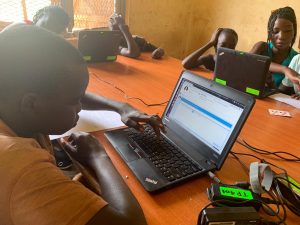 “NO, some people get water from sources which are dirty, and this makes water not safe for use.” – Kaim, Uganda
“NO, some people get water from sources which are dirty, and this makes water not safe for use.” – Kaim, Uganda
“No, I actually think with climate change it’s going to get a lot worse as we will have more extreme weather leading to droughts, floods and contaminated water sources.” – Tess, UK
“No, because people are too selfish to share properly” – Henry, Australia
“No, because in the villages, people use the same source of water with domestic animals like cattle, goats, etc and this makes them to be at a risk of getting diseases like cholera hence water becoming unsafe to them” – Robert, Uganda
Yes if everyone works together
Others felt more optimistic and think that one day everyone will have access to enough safe water, as long as individuals, industries and governments behave in certain ways.
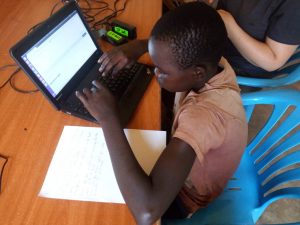 “I think this is possible if the government develops water resource regulations that can limit on poor usage of water that all people can access it in plenty” – Florence, Uganda
“I think this is possible if the government develops water resource regulations that can limit on poor usage of water that all people can access it in plenty” – Florence, Uganda
“Its possible if all people apply smart strategies like smart meters for industries, companies and homes to limit on the poor and over usage of water.” – Waswa, Uganda
“Yes it is possible for as long as resources are reallocated well in each area and people are taught other ways of harvesting water, for example, collecting rain water from houses and keeping it well and maintaining it can also help people access safe water.” – Ali, Uganda
“Yes during rainy season, people can use drums and basins and other forms of how to fetch rain water therefore, this makes it possible for people to have access to enough safe water.” – Lincon, Uganda
“Interesting. Yes but only if we aggressively fight climate change, stop consuming so much stuff we don’t need (mostly in the western world) and take care of the environment which water is a part of” – Erin, USA
How could we make it possible?
Some of the respondents gave suggestions on how they think we could improve safe water access for people around the world.
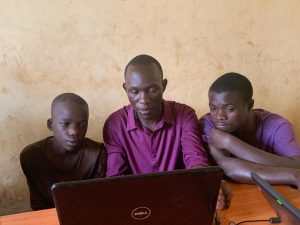 “I think the word ‘enough’ is interesting because one of the issues is that every society is increasing their use of water. When access to clean water is provided people naturally use more. In the first world, we use clean water for many things that we could use greywater for – like climate issues we need to raise the profile so people think about water and recycling water and not wasting it.” – Lis, UK
“I think the word ‘enough’ is interesting because one of the issues is that every society is increasing their use of water. When access to clean water is provided people naturally use more. In the first world, we use clean water for many things that we could use greywater for – like climate issues we need to raise the profile so people think about water and recycling water and not wasting it.” – Lis, UK
“I would hope so, access to clean water should be a thing that every person should have. That fact that people don’t still have usable water in some parts of the world is wrong. More should be done by the world governments to help these places to get access, by supplying equipment to filter and store the water and to train local people in how to use and maintain it.” – Mark, UK
“With over 70% of Earth being covered with water, there is clearly plenty available for everyone to access. However, the only reason as to why people don’t have access to clean water is the lack of initiative taken by political leaders to ensure water is provided to their citizens. If the government members take a stand and enforce the importance of clean water then people will have clean water in no time; after all, they are the ones with the power to make this happen.” – Razia
In conclusion
Overall the debate brought out lots of interesting ideas on both sides of the debate. Whilst many people said that they believe everyone should have access to safe water as a human right there was debate over whether this will ever be possible. Particularly interesting were the suggestions made for how we can work towards achieving access to water for all. Maybe if we all got behind these ideas, one day, everyone might have access to enough safe water.
Thank you for joining this month’s debate, we would love to have you join us again next month!



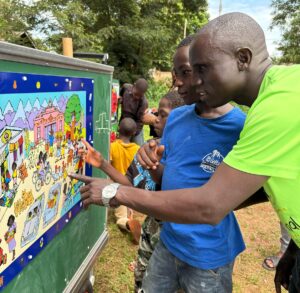
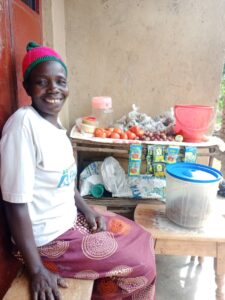
0 Comments